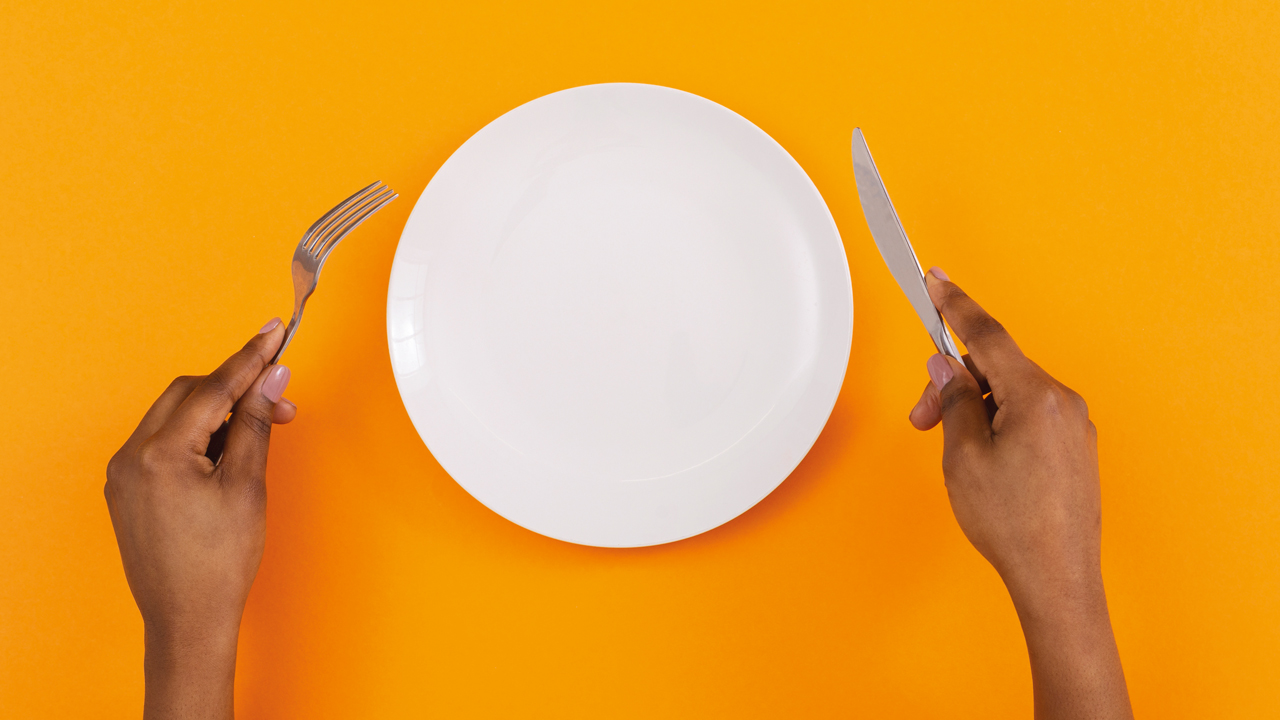In Conditions
Follow this topic
Bookmark
Record learning outcomes
From constipation, diarrhoea and bloating, to fatigue, stress, anxiety and even migraine, lots of health problems begin with what we put in our bodies and the subsequent effect this has on our digestive systems. Thankfully, there is plenty of advice that pharmacy teams can give customers to prevent common digestive issues.
Common foods that impact digestion
“The digestive system plays a major role in our overall health and can be impacted positively or negatively depending on the foods we consume,” says nutritionist Josephine Spire, author of The Complete Guide to Digestive Health.
Common foods that have a negative impact on digestion, according to Josephine, are:
- Fatty foods such as cream, butter, ice cream, soft cheese, bacon and fatty meats, which can irritate the stomach and bring on diarrhoea
- Acidic foods like oranges, grapefruit, lemons, tomatoes
- Foods high in sugar, which can cause stomach upsets and diarrhoea
- Spicy foods, which can cause indigestion or heartburn
- Dairy products such as milk, which can cause bloating, diarrhoea and gas – with many adults unaware they are lactose intolerant
- Fried foods such as fries, burgers, sausages, which can either move quickly and undigested through the body causing diarrhoea, or stay in the digestive tract longer and cause bloating because they are low in fibre and take too long to digest.
For people who have a weak digestive response, foods that require a lot of energy to process can be problematic. “Wheat-based foods, with their ‘sticky’ gluten content, can be particularly troublesome,” says Alison Cullen, education manager and nutritional therapist at health supplement manufacturer A.Vogel UK. “Although this can often be managed by reducing the quantities of wheat-based food in the daily diet.”
“"Foods that require a lot of energy to process can be problematic"”
Other symptom triggers
There are, unsurprisingly, plenty of other triggers for gut symptoms, such as caffeinated drinks and excessive alcohol intake.
Josephine also warns against ignoring the urge to go to the loo, as it can cause constipation. “When your rectum is full the body sends you signals to empty it, but if you ignore it for a lengthy period the stools will harden and become difficult and painful to pass.”
Lack of sleep and rest can also unsettle the gut since, like every bodily system, it recharges while we are asleep. “When you stay awake for lengthy periods this means you continue eating and your gut will continue working to digest the food you’re eating”, adds Josephine, “and this lack of repair and rebuilding time will have a negative impact on the digestive system”.
And of course, certain medications that are taken orally can cause side effects such as diarrhoea, vomiting, heartburn, constipation, nausea, bloating and abdominal pain – something which customers should always be encouraged to talk to the pharmacist or their GP about.
The Guts Charity 'Poo-torial' guide
More than a third of UK adults (34 per cent) have ‘unusual’ poo, with 60 per cent choosing not to seek medical attention through fear and embarrassment, according to recent research from not-for-profit healthcare provider Benenden Health.
Charity, Guts UK, is aiming to break the taboo surrounding toilet habits by encouraging people to regularly check the colour and consistency of their poo, as well as how frequently they empty their bowels – with a handy ‘Poo-torial’ reference guide at: gutscharity.org.uk/poo-torial.
For example, when it comes to colour, the guide explains that healthy poo is normally chestnut brown in colour, while red poo could indicate bleeding in the bowel, and black poo can mean bleeding higher up in the digestive system and is classed as a medical emergency that needs urgent attention. Silver poo is also not a good sign, as it may be a symptom of cancer.
As for frequency, three times a week to three times a day is considered normal, while a bowel movement less than once a week can be associated with constipation and should be discussed with a doctor. On the other end of the scale, going more than seven times a day is usually associated with severe diarrhoea and should also be investigated.
Stress and digestion
Stress is another factor that many people are unaware has a huge impact on digestive health.
“When danger looms, the body assumes you’ll be running or fighting for your life, in which scenarios your digestive system will not be needed,” says Alison. “Energy is therefore diverted away from digestion to the heart, lungs, muscles and brain to enable you to best survive the danger – hence stressful situations will reduce digestive abilities and will often trigger symptoms that are identified as irritable bowel syndrome.”
Reshma Malde, superintendent pharmacist at John Bell & Croyden, suggests a way to mitigate the effects of stress on dietary habits is through “mindful eating”. “It starts with making the right choices of food”, she says, “and taking time to chew so you are helping break it down to smaller manageable pieces which, when mixed with saliva, makes it easier for the digestive system to further break down and absorb the vital nutrition”.

Food solutions
As well as taking steps to mitigate these triggers, avoiding problematic foods is the simplest way to avoid digestive upsets – but certain foods can also be beneficial for repairing and protecting gut health.
Kenny Chan, lead information pharmacist at Numark, says pharmacy teams can advise customers to “try to eat more lean grilled meat and fish and drink semi skimmed or skimmed milk – all of which are low in fat and should impact digestion in a positive manner”.
One of the best ways to improve digestive health is by maintaining a diet rich in fibre. But what does this entail? “Fibre is a type of carbohydrate that our body is unable to digest, so it passes through our body undigested and regulates the body’s utilisation of sugar by controlling hunger and blood sugar levels,” explains Reshma.
“There are two types of fibre: soluble and insoluble. Soluble fibre is easily dissolved in water and decreases glucose and blood cholesterol levels, whereas insoluble fibre cannot be dissolved in water and, therefore, can be beneficial in the movement of food through the digestive system and in preventing constipation.”
Blueberries, apples, nuts, chia seeds, beans, lentils, and oatmeal are some examples of soluble fibre, with wholewheat products such wheat bran, quinoa, brown rice, legumes, green leafy vegetables, almonds, walnuts, seeds, and fruits with edible skins like pears and apples good examples of insoluble fibre.
Since fluids are needed to help food move along the digestive system as well as helping to break down food, lack of water intake can also result in constipation, bloating and a slower digestive process.
The Eatwell Guide says we should drink six to eight cups or glasses of fluid a day. Water, lower-fat milk and sugar-free drinks including tea and coffee, all count, but there are definitely some liquid options that should be ignored or restricted. Many soft drinks, including instant powdered drinks and hot chocolate, are high in sugar, which means they are also high in calories and can contribute to weight gain and dental decay.
“"Stressful situations will reduce digestive abilities and will often trigger symptoms that are identified as IBS"”
Lifestyle choices
Aside from food choices, there are lifestyle adjustments people can try.
“Studies have shown that exercise enhances the number of beneficial microbial species in the gut,” says Kenny. “A person’s weight can influence the digestive system. An excess in weight can cause an increase in abdominal pressure – in turn causing an increase in the amount of stomach acid being produced.”
Smoking is another factor that can harm the digestive system. “Smokers tend to get heartburn and peptic ulcers more than non-smokers,” adds Kenny. “Smoking can also increase the risk of gallstones and lead to cancers of the digestive organs.”
And finally, chewing gum contains ingredients which can contribute to diarrhoea, bloating and digestive distress, especially for people suffering from irritable bowel syndrome.

Studies have shown that exercise enhances the number of beneficial microbial species in the gut.
Pre- and probiotics
Stress, dietary changes, alcohol consumption, smoking, or medication such as antibiotics can create an imbalance of the microorganisms that live in our gut – known as the gut microbiota – which support the digestion process and keep the gut healthy.
Luckily, these can be rebalanced through diet and supplementation with prebiotics – which feed the body’s natural microbiome – and probiotics which add living bacteria to the gut.
“Prebiotics are a type of dietary fibre that serve as food for the beneficial bacteria in the gut,” explains Kenny. “They are not digested by the body but instead pass through the digestive system and are fermented by bacteria in the colon to produce short-chain fatty acids, which have been shown to improve digestion, enhance immune function, reduce inflammation, and improve overall gut health. These prebiotics are found naturally in foods such as apples, onions, garlic, leeks, bananas, asparagus and Jerusalem artichokes.
“Probiotics are live bacteria and yeasts that are ingested to improve the balance of bacteria in the gut. They work by adding beneficial bacteria, which can help to improve digestion, enhance immune function, and reduce inflammation and can help restore the natural balance of bacteria in the gut when it has been disrupted by an illness or treatment. Some of the most common types of probiotics include lactobacillus, bifidobacterium, and saccharomyces boulardii, for example.”
Supplementing with pre- and probiotics can also be beneficial after taking antibiotics, which often destroy both good and bad bacteria.
Extra aid
“Many people find ginger root or supplements effective in relieving nausea, vomiting and in encouraging efficient digestion,” says Josephine Spire, author of The Complete Guide to Digestive Health. “However, although ginger is regarded as safe for a variety of ailments, it’s a potent herb that acts pharmacologically, which means it may not be suitable for some people.”
Peppermint oil is another supplement used in a variety of digestive problems such as irritable bowel syndrome (IBS), indigestion, heartburn, nausea, vomiting, gas and diarrhoea. It may cause side effects such as heartburn and can also interact with certain medications, so anyone considering using this supplement should speak to the pharmacist first.
Alison’s recommendation is: “Bitter drops for those whose digestion needs support – licensed THR approved herbal remedies such as A.Vogel Digestisan oral drops fit into this category – and finely ground psyllium husks can be helpful if taken with plenty of water, bulking and softening the stool.”
Jill Stuart, commercial director for silicolgel – the UK’s third largest brand in the IBS category – says: “A compound of silicon and oxygen in a colloidal gel coats the stomach and the upper gastrointestinal tract with a protective lining and binds with irritants, excess acidity and gases, all of which can cause embarrassing symptoms of indigestion and stomach discomfort. When the stomach empties, these then pass out of the body naturally.”
John Bell & Croyden nutritionist, Samriti Juneja, suggests digestive enzymes such as “amylase, lipase, protease, lactase, and alphagalactosidase” may also be suitable for those unable to absorb nutrients in their bodies due to insufficiency or intolerance.
“"The digestive system plays a major role in our overall health"”

Top tips
When it comes to combating symptoms such as bloating, heartburn, constipation and diarrhoea, Alison says that good eating practices focusing on how to eat, rather than just what to eat, are extremely effective at reducing unpleasant digestive symptoms.
She suggests:
- Always sit down to eat. Take a breath and relax before starting your food
- Sit up straight to avoid putting pressure on the stomach contents to reflux
- Chew each mouthful at least 20 times, both to start breaking down content and to activate digestive enzymes in the stomach
- Avoiding drinking anything with your meal to reduces the volume in the stomach and lessen the likelihood of reflux
- Choosing bitter foods or taking bitter drops before meals will trigger the production of digestive enzymes
- Eating warm, cooked foods rather than cold, raw foods will benefit most struggling digestive systems.
If all else fails and customers are still suffering digestive symptoms, this is the time to refer on to the pharmacist who will be able to help identify potential triggers and, if needed, recommend appropriate over the counter medication or onward referral. With so many options, pharmacy teams – as the custodians of the counter – are the first line of defence in the battle against dodgy digestion.

